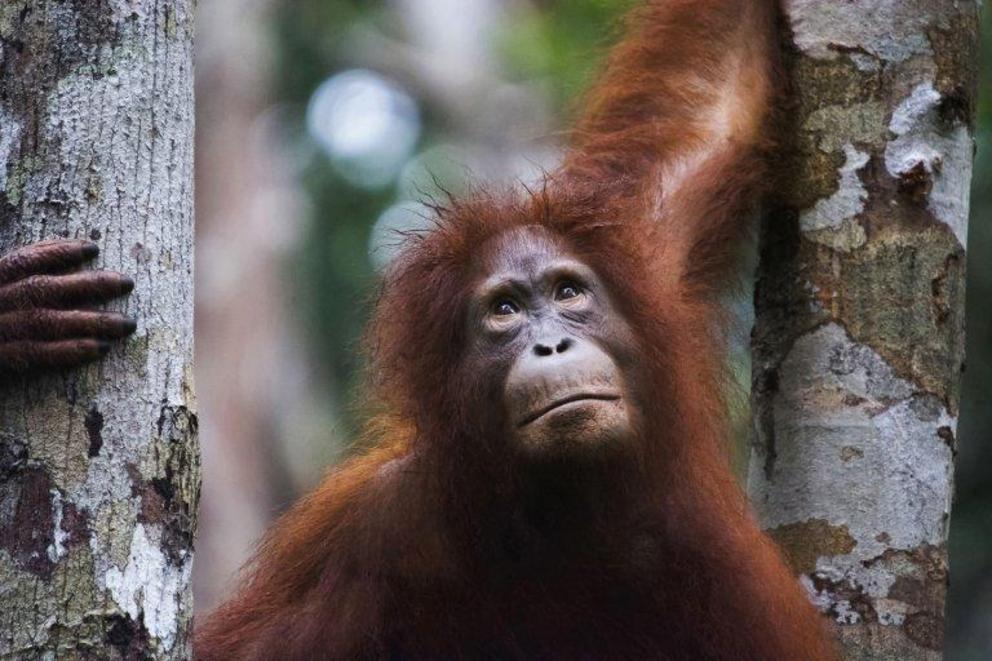Orangutans could go extinct within the next 10 years, animal charity warns
No one wants to witness the orangutan going extinct. But, unless the general populace boycotts the ingredient palm oil, which is used in hundreds of household and cosmetic products, we may have no choice. According to the conservation charity International Animal Rescue (IAR), orangutans will be extinct from the planet within the next decade unless forests in Indonesia are protected from palm oil plantations.
The call-to-action was delivered three years ago, one month after the Bornean orangutan was officially listed as critically endangered by the International Union for the Conservation of Nature (IUCN). The only other orangutan, the Sumatran orangutan, had already been classified as critically endangered.
The orangutan is primarily threatened by the development of palm oil plantations. As The Independent reports, the ingredient is used in everything from chips and pizza to toothpaste and biodiesel. The high demand for this product has resulted in one quarter of the country’s forests — 76 million acres, an area nearly the size of Germany — disappearing in the last 25 years.
In 2016, Alan Knight, chief executive of the charity, International Animal Rescue, warned that the orangutan was now on the “precipice of extinction.”
“If the current destruction of the rainforest continues, then I have absolutely no hope that any orangutans will remain in the wild,” he said. When asked how long they will survive, he somberly answered: “I would probably say 10 years if we cannot stop the destruction. I think the Sumatran will go before then if they don’t sort out the situation they are in.”
“It’s a real struggle and we are losing the battle,” Knight added.
According to the IUCN’s Red List of species, the Bornean orangutan’s population fell by more than 60 per cent between 1950 and 2010. Furthermore, their numbers are to expected to decline by a further 22 per cent by 2025.
If you would like to prevent the orangutan from going extinct, please consider supporting organizations like the IAR to protect the critically endangered species from further threat. You can also share this article to raise awareness, and join in the conversation in the

